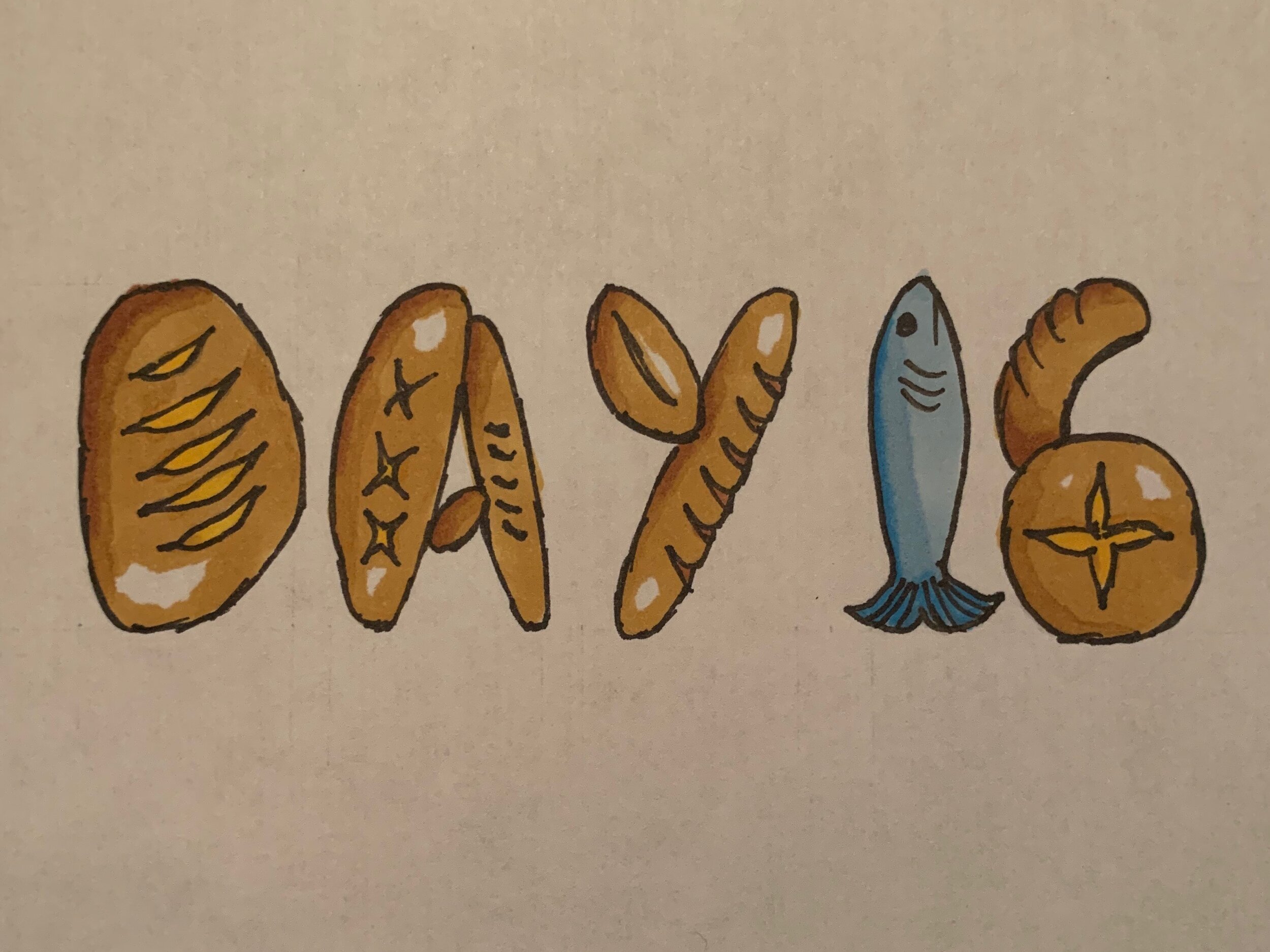day sixteen: enough
Live simply so that others may simply live.
-Ghandi
We’re in the final stretch, and so many of you have written to say how reading each day has anchored you in deeper thought. I’m grateful for all of your participation and your feedback. This week we’ll be taking our reflections and turning them into committed actions that might better our own lives and the world.
We teach our children that sharing is good. At the playground, we encourage them to share the free swing; at the beach, we tell them to share their sand toys. Share the book. Share the cookie. Share. Share. Then we grow up and do the very opposite. We stop sharing and start hoarding. Why is that? Why don’t we as adults live the very thing we work so hard to teach our children?
At the beginning of lockdown, food disappeared from shelves, people got physically violent over toilet paper and a nearby Costco had to close midday for a break because of the fighting. It made me think about the New Testament story of the loaves and the fishes.
A crowd followed Jesus to a remote place. When night was falling, his disciples encouraged him to send them back to the villages so they could buy food, but Jesus said to feed them instead. The disciples explained that they only had five loaves of bread and two fish. Jesus asked that the people be brought to him and, after giving thanks, he was able to feed all 5,000 men till they were satisfied and even had twelve baskets full of food leftover. This count didn’t even include women and children. Insert eye roll here.
Some might believe that Jesus miraculously transformed five loaves of bread and two fish into a feast for thousands. But I disagree. My interpretation has always been that Jesus inspired people to awaken and live with charity, to take out the food they had been hoarding for their journey and to share it with those around them. And once they did, there was more than enough to go around.
The United States comprises less than 5% of the world’s population, yet we utilize a third of the world’s resources. 41 million people in this country don’t have enough food, yet we are the global leader in food waste, throwing out 30-40% of our food supply. Something doesn’t add up. The numbers don’t work. We accept unacceptable truths with a defensive stance that there will always be rich people and poor people, as if there’s no choice about how much we keep and how much we share. Or which jobs and people we value and which we don’t.
Outside a local store at the beginning of the pandemic, a sign read, Before you buy ask: Is it necessary? Is it essential? It was obvious to ask those questions then, but why don’t we ask them all the time? In recent years, Marie Kondo has had millions of people reconsider their stuff. Now we need to ask ourselves the same questions about everything we have.
Reflective Journal Prompts
How have you been wasteful or excessive in the past? Where do you have more than you need?
What are you rethinking about what’s essential? Unnecessary?
Imagine what a world with a more balanced distribution of resources might look like. Describe it.
Discussion Prompt
There’s a Haitian saying that goes, If you get a piece of cake and eat the whole thing, you will feel empty. If you get a piece of cake and share half of it, you will feel both full and fulfilled. Talk about how living with less might be more fulfilling. For children, ask them why sharing is important.
Suggested Action
Write a list of how you are enough and have enough.
Further Reading
Are We All in This Together? | NY Times 4.13.20220

